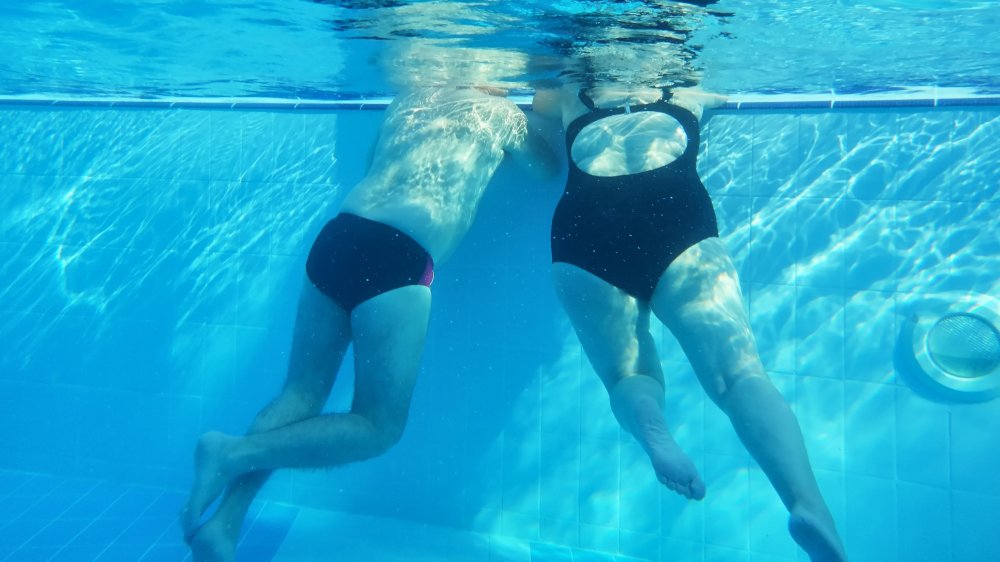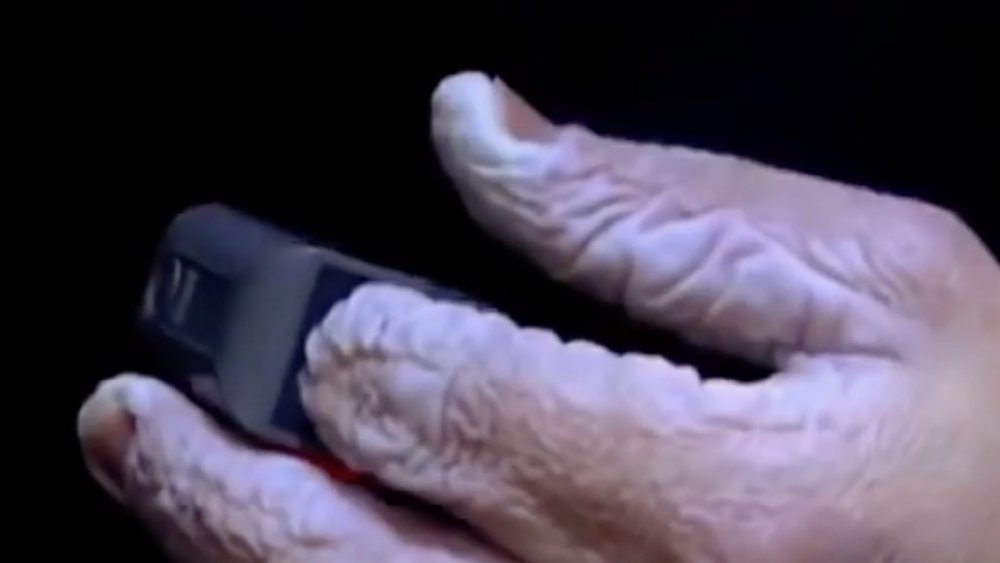What Happens To Your Skin After 10 Days In Water
We may take our skin for granted, but biology tells us that it is the largest organ in our body (via National Geographic). It is a waterproof shield that protects us from external influences such as sunlight, temperatures including heat and cold, as well as chemicals. It's made up of three layers: the epidermis (which itself has several layers), the dermis, and the subcutis. Among other things, our skin has a defensive system that alerts the body to potential infections and has nerves that act as the brain's bridge to the outside world. Our skin also allows us to become self-contained because it lets us move as we want to without having our insides fall out in the process.
We know we prune up when we spend more than a few minutes in the water. But what happens if you subject your body (and your skin in the process) with the pressure of being somewhere we wouldn't normally be — like in the water for 10 days? Tim Yarrow found out when he spent 240 hours submerged in the water, clocking up a world record and the title for the greatest human guinea pig of all time by "Outrageous Acts of Science" in the process (via HuffPost).
What happened to Tim Yarrow's skin?
While Yarrow managed to keep himself fed (low fiber, through a tube), and clean (he used a catheter), scientists saw the biggest impact on his skin which made his fingers end up looking like aged and wrinkled sausages. "The reason that you get such wrinkly hands and feet is because the surface of the skin is covered in dead keratin cells and they absorb water faster than any other cells," British ecologist Ellie Harrison says. "Because they're attached to the live keratin cells beneath, they just puff up and end up having to wrinkle. There's nowhere else for them to go."
Yarrow is lucky because the 10-day stint could have left him with unintended consequences. "I should think in the long term, if he stayed under water for an extraordinarily long time, the skin would break down. It would probably blister and that would leave him really open to infection, particularly in that water, he could get really quite ill," Harrison says.

